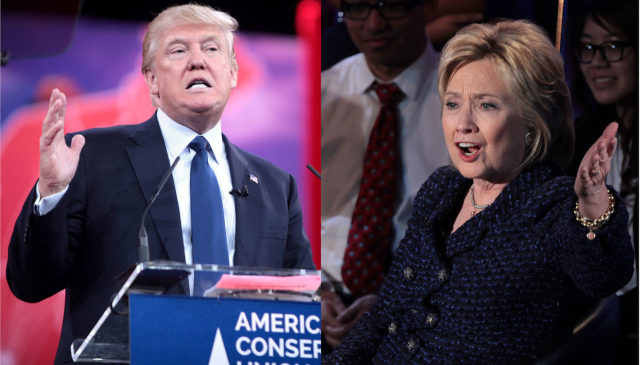
Anyone objectively watching the response to Trump’s election can’t help but notice the bizarre reactions. It’s as though reality is illusive, and manufactured.
I detect this detachment in two general areas: the causes of Trump’s election and the results thereof.
For many, Hillary’s election was a foregone conclusion. Nothing else even remotely made any sense, and, therefore, nothing else was even possible. It’s almost as though there wasn’t anybody else on the ballot.
That all changed Tuesday evening, Nov. 8. From my observations, the convulsions — that’s the only honest way that I can describe it — started then, and have never ceased.
One good example of the mindset that Hillary’s win was automatic is the election prediction organizations. For instance, according to Predictwise, as of 8:23 p.m. Eastern Standard Time on Nov. 8, the chances of Trump winning were 7 percent. But over the subsequent 2.5 hours, that probability surged by 89 percent. Reality came crashing down.
Let’s look at what this manufactured reality consists of. First, according to many on the left, there’s only a few reasonable explanations of why people could have voted for Trump, including, they’re either: racists (toward blacks, Mexicans, Muslims, etc); self-loathing white women; white working males who are bitter about a non-recovery; or white men who see a demographic shift happening that disfavors them. Oh, but we can’t forget the whopper of all explanations: the Russians.
What’s fascinating is the failure to not give serious consideration to the following: Hillary’s likely continuation of Obama’s policies, and what that means; Obama’s overreach (and outright disregard for the minority party’s position) on Obamacare, Health and Human Services contraception mandates, and bathroom policy (to name just a few); the misrepresentations and disastrous impact of Obamacare; Benghazi; the Clinton Foundation; and deleted emails. Not to mention Hillary‘s abysmal trustworthiness, her characterization of a large fraction of voters as “deplorables,” and her nonchalant defense of partial-birth abortion.
No, it doesn’t seem like there has been much objectivity employed as to what happened and why.
Next let’s review what the Trump election will mean. Here are a few of the fears that I’ve heard expressed. He’ll begin deportations on Nov. 9th (before he’s even in office!); he’ll outlaw any religion other than Christianity; he’ll take away free birth control on January 20. And, of course, the stock market will crash.
You might think that this kind of thinking is confined to just the far-left, but it has manifested in our local governments. Barely three weeks following the election, Boulder County announced that all County buildings were “Safe Zones.” According to the Camera, the commissioners stated that “the posters were not prompted [by] any specific incidents of threats against county workers or people visiting county buildings but that there have been anecdotal reports of people in Boulder County experiencing ‘what is perceived as hate speech, since the elections.’”
And now, Boulder City, not to be outdone by the county, has declared itself a sanctuary city, and made a point of doing so before Trump takes office.
You see, in their minds, this all makes sense.
The latest spasm is the howling of the illegitimacy of the Electoral College. Apparently, if your candidate happens to win the popular vote but doesn’t win the electoral vote, then the EC is illegitimate, and needs to be abolished. It doesn’t appear that much thought has been given to the idea of the Senate, where, for instance, Rhode Island has the same sway as California.
For the most part, the same mindset that brought about the election also prevents an honest reflection of the outcome.
However, there are a few glimpses of a desire on the Left to learn how “those” people think. In his 12 steps for responding to the Trump election, New York Times writer Nicholas Kristof suggests, “I will resist dwelling in an echo chamber. … and that if I know only Clinton supporters, then I don’t have a clue about America.” And Fareed Zakaria noted in a post-election column that, “Trump remade the political map with a huge surge of support from working-class whites, particularly in rural communities. Let me be honest, this is a world I don’t know — and many people probably don’t know very well — and that’s part of the problem.”
But even in his willingness to learn what caused Trump’s win, Zakaria doesn’t get it. He doesn’t seem to think that any educated, urban dweller (White or minority), who hasn’t been “left behind” economically, could, in their right mind, have voted for Trump.
And that’s a big part of the problem.
This opinion column does not necessarily reflect the views of Boulder Weekly.














